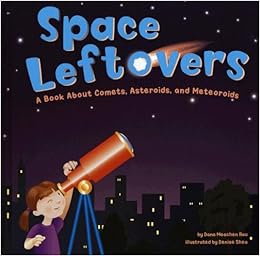
I'd already shared the best of last week's space news from Overnight News Digest: Science Saturday (Kepler-186f) in Examiner.com article on Kepler-186f, Twins on Earth and Space and Earth Day 2014, but I have more left over for tonight's entry. I begin with a recap of last week's NASA highlights.
NASA: The Dragon Takes Flight on This Week @NASA
SpaceX-3 launches to the International Space Station, Kepler finds a Earth-sized planet and LADEE ends its mission on the lunar surface. These stories and more on this week's, This Week @NASA.Follow over the jump for the week before's This Week @NASA, the latest on noctilucent clouds, and an experiment that finally went to the ISS last week after a delay.
First, A 'Go' To Build OSIRIS-REx on This Week @NASA.
The team that will conduct NASA's first mission to collect samples from an asteroid was given the go-ahead to start building the OSIRIS-REx spacecraft, flight instruments and ground launch support facilities, thanks to a successful Mission Critical Design Review. OSIRIS-REx (Origins Spectral Interpretation Resource Identification Security Regolith Explorer) is scheduled to launch in 2016 to the asteroid Bennu and return to Earth with a sample of the asteroid in 2023. The mission seeks answers about the organic materials of the early solar system that made life possible here on Earth. Also, Budget and security hearing, From here to Mars, Low Density Supersonic Decelerator, Bolden visits JSC, New supplies for space station and 50 years of "It's a Small World."Next, Science at NASA's ScienceCasts reports on Unexpected Teleconnections in Noctilucent Clouds.
NASA's AIM spacecraft is discovering unexpected "teleconnections" in Earth's atmosphere that link weather and climate across vast distances.Finally, Purdue University writes about an experiment now at the ISS in Purdue study to measure gravity's effects on plant cells in space.
UPDATE: The launch of the SpaceX Falcon 9 rocket was scrubbed Monday (April 14) afternoon due to a helium leak. The rocket will launch no earlier than Friday (April 18) at 3:25 p.m.That's it for last week's space news.
WEST LAFAYETTE, Ind. - A Purdue University experiment that will test how plant cells sense and respond to different levels of gravity is scheduled to launch aboard the SpaceX Falcon 9 rocket from Cape Canaveral, Fla., on Monday (April 14).
Understanding how gravity impacts plants is key for determining the conditions necessary to grow plants in space.
"Being able to grow plants for food in microgravity and space environments is crucial if we're going to reach this amazing future of long-term space exploration that we all imagine," said Jenna Rickus, associate professor in the departments of Agricultural and Biological Engineering and Biomedical Engineering. "We tend to think of propulsion and spacecraft technology as the main challenges to space exploration, but the true challenge is really the biology."
No comments:
Post a Comment